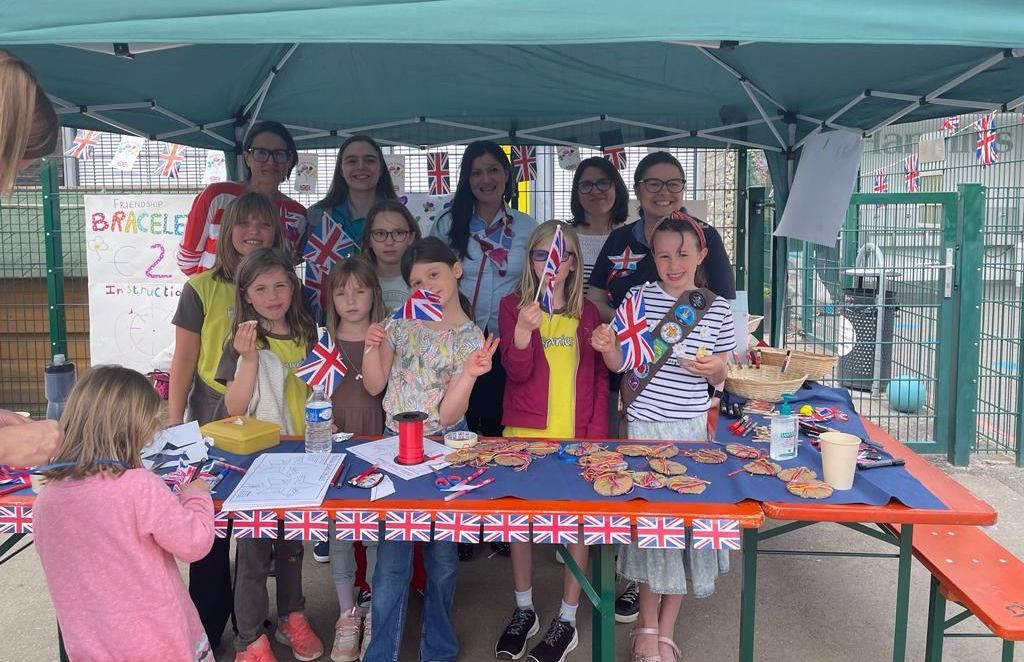The board of trustees of Girlguiding in the UK earlier this year said it would cease the operations of British Girlguiding Overseas (BGO), which has been active for more than 100 years with the first group established in Portugal in 1911.
The overseas branch includes around 2,600 members in 36 different countries and territories, including in the Middle East and Africa, Asia, Benelux and France, Europe but also British Overseas Territories in the Caribbean and Atlantic.
“After all the efforts we made during covid to keep things alive, they decided to close,” said Adriana Coppola-Finegan, who leads the Luxembourg group since 2020. “The only reason they keep telling us is that there is too much corporate risk, but we still don’t know which kind of risk they’re talking about.”
With Brexit two years in the past, she said she cannot see this as a reason either, all the more because BGO operates in many regions outside of the EU. “They have been operating for more than 100 years… so that something changed so drastically, it doesn’t make sense.”
The board of trustees hasn’t shared minutes of the meeting where the decision was taken, said Coppola-Finegan. “There hasn’t been any transparency.”
First activities in 1976
Girlguiding in Luxembourg currently offers activities for Rainbows (ages 4 to 7) and Brownies (7 to 10). “It’s around 20 girls, and we have a big waiting list.” The group has been recruiting Guides (10 to 14) and Rangers (14 to 18). Most of the older girls left for university last year, Coppola-Finegan said.
The first Brownies group in Luxembourg met all the way back in 1976 together with the American Brownies, before growing in size to become an independent association. The first Rainbows unit was founded in 1991. The Rangers were the last age-group in the line-up, established in 2009.
The Girlguiding district commissioner herself attended the Scouts and Guides as a kid, a mixed boy and girl association. After a volunteering programme in Switzerland, which was run by women for girls, she began to see the benefits of an all-girls group.
“Girls deserve to have a space like this, because it’s a place where they can safely make mistakes. They can be with their peers, and they can take off the pressure that they might feel sometimes being surrounded by boys,” she said about the tailor-made programmes that aim to develop confidence and leadership skills. “It’s incredible how safe they feel, how secure, how themselves.”
“Girls deserve better”
One suggestion by the Girlguiding board of trustees has been for the girls to join local scouts and guides, which Coppola-Finegan said contradicts the group’s advocacy for girls-only spaces. It also defeats the point to offer a space for children of expat families, not only as an English-speaking group but also to provide continuity for girls enrolled in Girlguiding elsewhere before arriving in Luxembourg.
At this point, though, Girlguiding in Luxembourg is looking at “any option that can keep us alive.” That includes talks with other local guides and scouts--there is a mixed English-speaking group, Telstar--but also exploring the possibility of going it alone. “The fact is that we won’t stop guiding in Luxembourg, because the girls deserve better,” said Coppola-Finegan. “It’s not fair.”
Meetings with regional heads are also still ongoing, but the district commissioner wants a solution in place by September so that girls returning from summer holiday will be able to resume activities.
UK ambassador acts as patron of the group in the grand duchy and the embassy in an email said “we stand ready to support the British Girlguides here in Luxembourg as they navigate this decision taken by the parent group in the UK.”
An in support of British Girlguiding Overseas has reached more than 15,000 signatures worldwide, with Coppola-Finegan hoping that many more will join them. She is also urging anyone who has been involved in Girlguiding to “make some noise” on social media and write letters to the head office in the UK. “We want to swamp their desks and tell them we’re not happy.”
